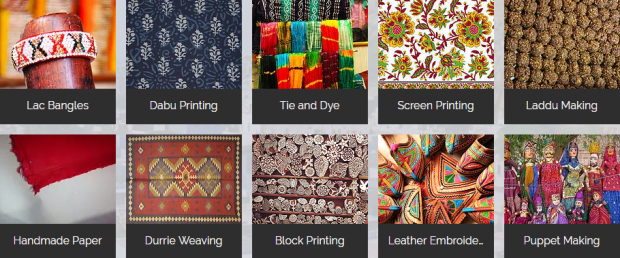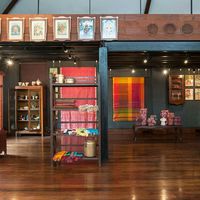The Jodhpur Lore crafts workshops programme

The Jodphur Lore project in Rajasthan welcomes arts students, academics and enthusiasts to join a workshops programme connecting arts, crafts, heritage, architecture and tradition in Jodhpur. The project aims to help make traditional crafts sustainable and empower local artisans.
This two-week residential program will introduce students to nine or ten different crafts of this city. The series of workshops will include Tie and Dye, Block Printing, Dabu Printing, Screen Printing, Leather Embroidery, Durrie Weaving, Puppet Making, and Handmade Paper Making. Food trails, architecture walks, and visits to artisans’ houses and key heritage buildings in the area renowned for its forts and palaces, will allow for a three-sixty-degree experience and acquaint the participants with the city of Jodhpur, which has always been an active occupational centre for these traditional crafts.
https://youtu.be/EoXjBI9mlsoModule 1: Comprehensive Workshops
Saturday, 1 July 2017 to Saturday, 15 July 2017
Saturday, 22 July 2017 to Saturday, 5 August 2017
Any other slots can be worked out depending on a total of 20 people.
Module 2: Experiential Workshops
1- or 2-day workshops on selected crafts on dates booked in advance between September and April.
Please check the fees information
The Jodhpur Lore is an initiative born out of a lifelong passion for the traditional arts and crafts of Rajasthan. Conceived by award-winning architect Anu Mridul and designer Shilpa Mridul, TJL aims to introduce a global audience to the artistically and technically skilled craftsmen of Rajasthan and, via an exchange of ideas and skill sets, help develop the centuries-old crafts into globally recognisable and marketable products. These workshops, through the global connect, will help in making these traditional crafts sustainable and the artisans, many of whom are women, economically more empowered.
Similar content
from - to
07 Oct 2012 - 10 Oct 2012
from - to
07 Jun 2016 - 30 Sep 2016
from - to
01 May 2020 - 03 May 2020
deadline
30 Nov 2018





